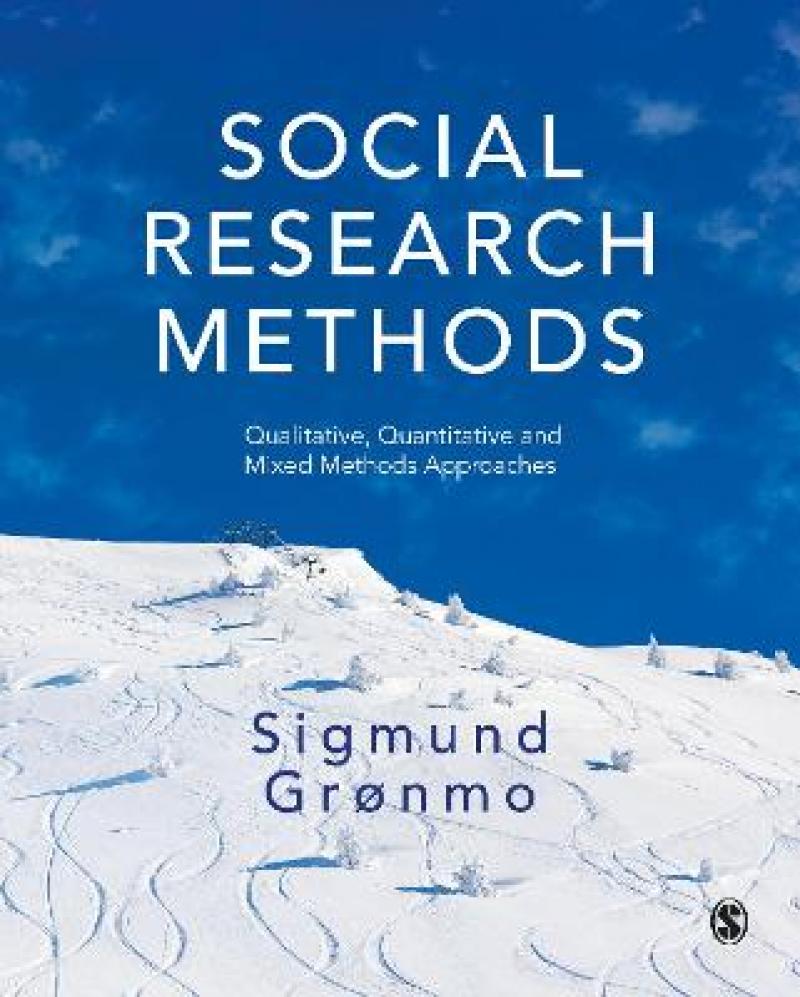Structured around one of the concepts students struggle with the most—the research question—this book begins with how to understand the role of good questions before demonstrating how questions underpin good research designs and how social research can be framed as asking and answering questions. Perfect for undergraduate students new to methods, it teaches students how qualitative, quantitative, and mixed methods research can be used to answer these questions.
"An incredibly resourceful book that contains a forensic insight into social research methods, offering the full range of contemporary approaches. Students will find particular value in the accessibility and detail of the text. Each chapter provides a set of learning outcomes, study questions and further reading." - Dr Ruth McAreavey, Newcastle University
Supported by a website that maps online resources to key stages of the learning process, it helps students:
- Understand the scientific method
- Learn the vocabulary of social science research
- Plan and design research
- Practice with and interpret data
- Explore social science literature and improve assignments with good citations
- Improve critical thinking.
Extensive visualizations, overviews, examples, exercises, and other learning features, make this the perfect introductory text to build confidence and best practice around research methods.
Les mer
With extensive visualizations, overviews, examples, exercises, and other learning features, this book begins with how to understand the role of good questions in underpinning good research designs and how social research can be framed as asking and answering questions.
Les mer
Part I: Researching Society
Chapter 1: How and why we study society
Chapter 2: Methods and methodologies in social science
Chapter 3: The ethics and politics of research
Part II: Designing Social Research
Chapter 4: Creating research questions
Chapter 5: Doing a literature review
Chapter 6: Choosing a research design
Chapter 7: Finding sources and data
Chapter 8: Sampling
Part III: Data Collection and Data Quality
Chapter 9: Ethnography and participant observation
Chapter 10: Unstructured interviews and focus groups
Chapter 11: Documentary sources and qualitative content analysis
Chapter 12: Structured observation
Chapter 13: Questionnaires and surveys
Chapter 14: Quantitative content analysis
Chapter 15: Data quality, reliability and validity
Part IV: Data Analysis
Chapter 16: Analysis of qualitative data
Chapter 17: Indexes and distributions
Chapter 18: Relationships between variables
Chapter 19: Statistical generalization
Chapter 20: Mixed methods and combining data
Part V: Asking and Answering Questions in Social Science
Chapter 21: Description, explanation and understanding
Chapter 22: Time, space and level
Chapter 23: Relations, networks and structures
Chapter 24: Big data and computational social science
Part VI: Writing and Presenting Research
Chapter 25: Working with data visualization
Chapter 26: Writing about research
Les mer
A thorough and lucid account of mixed methods approaches to exploring the social world, and an admirably practical guide for new and developing researchers.
Produktdetaljer
ISBN
9781526441249
Publisert
2019-10-29
Utgiver
Vendor
SAGE Publications Ltd
Vekt
1160 gr
Høyde
246 mm
Bredde
189 mm
Aldersnivå
UU, 05
Språk
Product language
Engelsk
Format
Product format
Heftet
Antall sider
592
Forfatter
